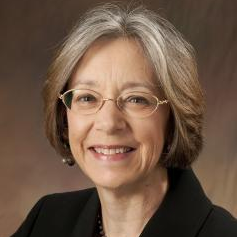 In November, the UIC John Marshall Law School held their 63rd Annual Intellectual Property Conference in Chicago, IL. The program consisted of four plenary sessions and nine breakout sessions covering artificial intelligence, patents, copyrights, trademarks, trade secrets, antitrust, and in-house counsel, as well as IT and privacy developments. Speakers came from China, Europe, and the Middle East, and represented government, industry, academia, nonprofits, and practice. IPWatchdog’s Editor-In-Chief, Eileen McDermott was there.
In November, the UIC John Marshall Law School held their 63rd Annual Intellectual Property Conference in Chicago, IL. The program consisted of four plenary sessions and nine breakout sessions covering artificial intelligence, patents, copyrights, trademarks, trade secrets, antitrust, and in-house counsel, as well as IT and privacy developments. Speakers came from China, Europe, and the Middle East, and represented government, industry, academia, nonprofits, and practice. IPWatchdog’s Editor-In-Chief, Eileen McDermott was there.
The program kicked off with a keynote address the Honorable Chief Judge Diane Wood (pictured left) of the U.S. Court of Appeals for the Seventh Circuit. Titled “Antitrust & IP: Does It Need to Be Retooled?”, Chief Judge Wood spoke about the need for procedural and substantive reform. She began by observing that “[t]he general rule has been for many years — and I think this is entirely correct — that intellectual property is property.” She noted that this approach has been encapsulated in the Department of Justice and the Federal Trade Commission’s Guidelines for the Licensing of Intellectual Property, and that “the fundamentals of antitrust analysis are the same, although the answers may be a little different.” Citing standard essential patents as an example, she said that “there may be some real synergies back and forth between the IP field and the antitrust field that would be well worth exploring,” in particular when considering how antitrust law should approach access issues involving digital platforms, as what is sought is “FRAND-type access to these platforms.”
Procedurally, Chief Judge Wood advocated rethinking whether patent appeals should all go to the Federal Circuit:
The bottom line is, as I’ve suggested before, I think that we should change the regime for the Federal Circuit appeals, fix the uniformity problem using the Judicial Panel on Multidistrict Litigation so that only one court has authority over any one patent at any time so you don’t get conflicting results about patents, and that you make the jurisdiction an optional choice. That’s true in many areas. For example, if you want to take an appeal from a National Labor Relations Board action, you can either go to a regional court or you can go to the D.C. Circuit. Let the parties choose. That allows the development of different thinking.
We asked a group of attendees to share with us what they felt was a key message that they took from the conference this year. Following are comments from several attendees of the conference.
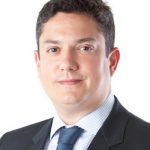 Carlos Aboim
Carlos Aboim
Partner, Licks Attorneys
The Annual Intellectual Property Conference of UIC John Marshall Law School in Chicago, IL, has been an outstanding opportunity to meet expert speakers from all fields of practice, often with opposing but balanced views – making it impossible to miss. Only the exchange of ideas can promote innovation and economic growth. As a litigation attorney, it is paramount for me to understand how courts in the US, UK, DE, and others are dealing with the challenging interface between Antitrust and IP law, choosing between competing narratives will influence innovation across multiple industries. I tried to provide my contribution by sharing my concern that foreign decisions may be misrepresented in developing countries, where antitrust agencies may “misuse” competition law to undermine IP rights to protect “national champions”.
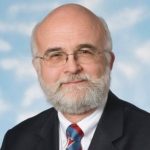 Ken Adamo
Ken Adamo
Owner, Law Office of KRAdamo
A selection of mainline patent litigation substantive and procedural topics, as well as further US Congressional reform legislation possibilities, drew the attention of a panel of experienced trial lawyers and academics, producing a spirited session whose proceedings were aided by candid remarks from well-regarded, experienced US and German appellate judges in attendance, as well as participation from an active, engaged audience. The current status of US and UK patent infringement under the doctrine of equivalents, as tempered by prosecution history estoppel; US patent damages including possible recovery for foreign activity in certain circumstances, in light of the US Supreme Court ‘s WesternGeco decision; a review of the first year of US post grant review proceedings carried out under the Phillips v. AWH claim construction regime also followed by US district courts; and a lively “best guess/surmise” presentation of current on-the-table legislative efforts to fine-tune the substance and procedures in the US patent system, drew focused (and sometimes impassioned) review, guidance, commentary and forward-looking consideration. The presentations and debate of practices, strategies and tactics that resulted fueled further new thoughts, interplay and an apparent sense of heightened understanding of these key aspects of US patent enforcement.
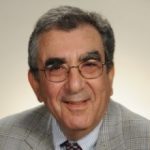 Martin J. Adelman
Martin J. Adelman
Theodore and James Pedas Family Professor of Intellectual Property and Technology Law;
Co-Director of the Intellectual Property Law Program;
Co-Director of the Dean Dinwoodey Center for Intellectual Property Studies;
George Washington University Law School
I want to compliment Daryl Lim and his team at John Marshall for putting together a remarkable roundtable covering AI on Thursday, October 31 and a stimulating conference ranging over many IP issues on November 1 styled as the 63rd Annual IP Conference at UIC John Marshall Law School. But this was a special conference as it was the first such conference with John Marshall as a public law school. The Friday event started with a stirring speech by Chief Judge Diana Wood of the Seventh Circuit. She spoke about appeals in patent cases and suggested that the system would work better if there was at least one more Circuit handling such appeals. It sounded like a lament and a cry that our Circuit’s jurisdiction is boring and we sure would like some more interesting cases like patent cases. I am sorry to report to her that, that train left the station in the early eighties of the last century. The rest of the day was a lot of fun filled as it was with discussions of key IP issues rather than long boring speeches with people reading aloud PowerPoint slides. So let me close by repeating that Daryl Lim and his team did a terrific job.
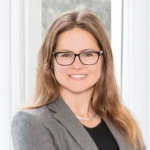 Dr. Catharina J. Casper
Dr. Catharina J. Casper
Patent Attorney, Lorenz Seidler Gossel
Thanks again to Daryl Lim and his colleagues at UIC John Marshall Law School for setting up another successful Annual Intellectual Property Conference. Starting off with the Annual IP Leaders’ Roundtable on October 31 that focused on Artificial Intelligence, the first day was filled with lively discussions as leading professionals from diverse fields grappled with questions of whether and how AI will necessitate changes in the law and in society as well as how the emergence of AI impacts on privacy laws and IP law. I was especially impressed with the interactive set-up of the conference that fostered a fast and fruitful communication across professions I haven’t experienced at any other conference yet.
The second day on November 1 featured a full day of separate panel discussions involving current developments in patent law, IP and antitrust law, copyright law, trademark law, trade secret law, and IP and privacy law. I contributed by providing the European angle in the discussions on patent eligibility and international filing strategies. The best thing for me, however, was meeting all these interesting and outstanding people from diverse legal and technical backgrounds.
 Paul Coletti
Paul Coletti
Associate Patent Counsel, Johnson & Jonson
A worthwhile conference for all involved. Great exchange of ideas. Informative program, active panelists, great speakers. I highly endorse for future years.
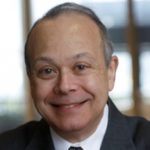 Thomas F. Cotter
Thomas F. Cotter
Briggs and Morgan Professor of Law, University of Minnesota Law School
It was great attending UIC John Marshall Law School’s 63rd Annual Intellectual Property Law Conference, and having the opportunity to interact with lawyers, judges, and academics from around the world. I especially enjoyed the antitrust & IP sessions–both the plenary session at which Judge Diane Wood gave the keynote address, and the later session in which I was privileged to participate. Great discussion and debate on some of the most important topics facing courts and policymakers today.
 Steven M. Geiszler
Steven M. Geiszler
U.S. Chief Intellectual Property Litigation Counsel
There is significant variation in how different nations—and sometimes different authorities within the same nation—perceive jurisdiction over FRAND disputes or how to resolve them. This variation fuels the global “race to the courthouse” that many warn will frustrate resolution of global FRAND disputes and might be viewed as judicial expansionism—unless all key stakeholders (e.g., nations with large portions of relevant patents and revenues) are satisfied that their laws and interests are respected. The fact that parties seek anti-suit, anti-anti-suit, and even anti-anti-anti-suit injunctions indicates that comity and consensus remain elusive. When oft-conflicting antitrust and competition laws are overlaid the patchwork of patent and contract doctrines, this international predicament worsens.
Jurists, academics, and practitioners are working across national boundaries and disciplines in search of global solutions. But soon 5G and the Internet of Things will draw many unwitting, unprepared companies into this years-long problem—one that historically has been handled by market players well equipped to participate. For example, telecommunications SEPs are now impacting automotive companies, and IoT will soon embroil other industries. When companies from industries unfamiliar with SEPs and FRAND are increasingly joined into these disputes, the need for a transparent, predictable, international solution will crescendo.
 Gordon Humphreys
Gordon Humphreys
Chairperson of the Fifth Board of Appeal, Boards of Appeal
European Union Intellectual Property Office
As one of only a handful of Europeans invited to speak at the 63rd Annual IP Conference, I feel very privileged and grateful to have been asked by Prof. Daryl Lim to sit on the afternoon breakout session dedicated to trademarks. UIC John Marshall Law School’s conference provides an outstanding forum in which experts across a board of disciplines in IP can interact and exchange ideas. Judges, lawyers, academics, government officials and economists cross-fertilize debate in a panel setting, in which ample time is given to audience participation. My main takeaway is that we face many of the same problems both sides of the Atlantic, and focusing on commonalities is far more useful than simply emphasizing differences. Topics like failure to function as a trademark, surveys on acquired distinctiveness, precedents allegedly set by allowing similar trademarks onto the register to those subsequently refused, the fair use balance between strong trademark protection and free use of descriptive language, free speech and trademarks as well as trademark law being misused to achieve copyright-like protection – provide highly relevant subjects for discussions for all trademark practitioners, and I have now returned to Europe with much food for thought.
[The views and opinions set out in the statement above do not represent the views and opinions of the EUIPO, but are the personal views and opinions of the author.]
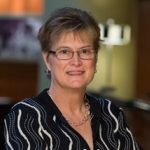 Lisa K. Jorgenson
Lisa K. Jorgenson
Executive Director, AIPLA
For the second year in a row, I attended the Annual Intellectual Property Law Conference at UIC John Marshall Law School, preceded the day before by the Annual IP Leaders’ Roundtable focusing artificial intelligence. These two days brought together many thought leaders from around the globe. While the AI Roundtable discussed many of the IP issues, it was clear that there remain unanswered questions about how to fully protect and enforce AI inventions. With all of the activity around AI today, I am sure we will have more to talk about again next year. The topics on the second day covered all areas of the law from trademarks, trade secrets, patents, copyrights and more, and provided a wonderful opportunity to discuss the diverse perspectives facing practitioners today. This conference once again exceeded my expectations and I was honored to be a part of it.
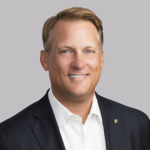 Adam G. Kelly
Adam G. Kelly
Partner, Loeb & Loeb LLP
The UIC John Marshall Law School IP Conference was a unique combination of academics, government dignitaries and practitioners who constructively addressed several issues currently facing the national intellectual property bar. This annual event has become one of the can’t-miss conferences of the year.
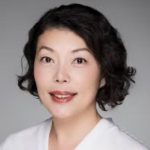 Lan Li
Lan Li
Partner, Anjie Law Firm
It was my great pleasure to attend UIC John Marshall Law School’s 63rd Annual Intellectual Property Law Conference which is one of the best conferences in which I have participated in the US. I was also honored to be a panelist of the session of global IP issues to talk about IP litigation in China. To me, as an ex-IP judge and IP lawyer practicing law in China, I was impressed that the IP conference was a very international platform that enabled the speakers from Germany, Britain, US and China to share their perspectives. In addition, the program afforded the participants to explore the cutting edge issues of theory and practice, academic and practical, in a variety of topics such as intellectual property, AI, IT and privacy law. The whole program was well organized, efficiently run, informative and useful.
Law Student, UIC John Marshal Law School
Operations Manager of Trademark Renewals (US), Dennemeyer Group
UIC John Marshall Law School’s 63rd Annual IP Conference was held on November 1, 2019. As a current UIC John Marshall law student and as a professional working in the field of IP Law, the conference was a wonderful opportunity to become exposed to the full spectrum of current issues facing IP practitioners from patents, trademarks, copyrights, blockchains, antitrust to AI. The conference drew a remarkable list of speakers and attendees, like the Hon. Diane Wood, Hon. Andrei Iancu, and Hon. Klaus Grabinski, just to name a few, who shape IP in the US and EU law today.
The last session of the conference opened the floor for some great discussion centered on artificial intelligence (AI). There was much deliberation around what AI is and how much control creators have over it. The AI product was described as “the healing powers of a shaman,” since the result is clear but not the method of achieving it. Especially interesting was the debate by copyright practitioners regarding the ownership of the AI final product. A compelling argument was made for considering it as separate from the code creator and some took a more traditional view of the code creator as the AI product owner.
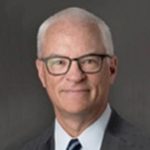 Kevin C. Parks
Kevin C. Parks
Shareholder, Leydig, Voit & Mayer, Ltd.
UIC John Marshall Law School’s Annual IP Conference is simply the best of its kind, one of the only ways to genuinely “catch up” on a year’s worth of intellectual property developments in a single day. This year’s morning plenary sessions were exceptional, with leading lights from various sectors contributing to well-moderated, “no talking heads” debates.
As always, the afternoon sessions drilled down beyond the headlines. As a copyright panelist I benefited from lively exchanges concerning the Supreme Court’s copyright docket, the complexities of terminations, and the renewed vitality of the copyright public domain.
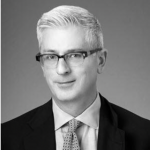 Thomas D. Pease
Thomas D. Pease
Partner, Quinn Emanuel Urquhart & Sullivan, LLP
This year’s UIC John Marshall Law School IP Conference was an outstanding event, with leading judges, practicing lawyers and professors from around world addressing head-on the key issues that IP practitioners currently face. Two separate panels, including one featuring a keynote address by Chief Judge Diane Wood of the 7th Circuit Court of Appeals, thoroughly addressed issues at the forefront of the intersection of IP and antitrust law. Among other things, these panels discussed FRAND licensing commitments for SEPs and the proper means of enforcing such commitments in licensing, litigation and through various worldwide regulatory regimes. Other panels, in turn, addressed the patentability of algorithms, and other current patent, trademark and copyright issues, as well as the impact of artificial intelligence on IP law and policy. It was a fascinating, one-day conference that offered participants the chance not only to learn about current issues in their respective fields, but to meet interesting people with a wide range of backgrounds.
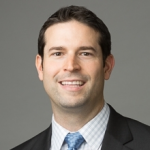 Ryan N. Phelan
Ryan N. Phelan
Partner, Marshall, Gerstein & Borun LLP
The 63rd Annual IP Conference brought together unique perspectives from a variety of roles, from academic to practitioner, including outside and in-house counsel, and in a variety of topic areas. For example, as a panelist on the artificial intelligence (AI) session, I was able to discuss, with my fellow panelists and other participants of the plenary session, different approaches and strategies for addressing new age concerns brought on by AI, not only from business distribution standpoint, but also from a legal standpoint, including how the U.S. Patent Office and foreign patent offices are addressing the issues of patents, copyrights, and other forms of IP with respect to AI.
 Brent P. Ray
Brent P. Ray
Partner, King & Spalding LLP
The 2019 version of the conference was in many ways like prior years: lively discussion, passionate panelists and important topics covered. But one thing never ceases to amaze – the number of new and creative ideas introduced and earnestly discussed to solve the ever-increasing number of complexities with domestic and international intellectual property law. To be sure, we are in good hands to pave the road ahead with thoughtfulness, intellect and vigor.
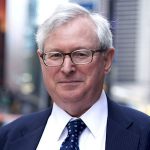 John Richards
John Richards
Of Counsel, Ladas & Parry LLP
It is several years since I last participated in John Marshall’s IP Conference. During my absence it has changed from a conventional ”here are the facts” presentation to a lively discussion of what the facts mean and how they may themselves evolve, without forgetting that members of the audience include students who may need reminding what some of the facts are. All of the hot patent law topics of the day were addressed in a substantive and thought-provoking way: what to do about the 35 USC 101 mess, especially with respect to diagnostics; whether competition law or contract law or some combination was needed to resolve difficult issues with respect to Standard Essential Patents, particularly when the remedies available under contract law can vary from country to country and the European broad concept of abuse of a dominant position may not always find counterparts in other countries; and the role of ownership, access to and suitability for purpose of data to be used in training artificial intelligence. All-in-all, the stimulation did me good.
 Gwilym Roberts
Gwilym Roberts
Chairman; European Patent Attorney, Kilburn & Strode LLP; Honorary Professor, Centre for Commercial Law Studies, Queen Mary University of London
It’s great to see the interest in and knowledge surrounding AI and IP. We are the right people to be looking at this because IP specialists basically see most technologies first, and even though we may not be the best qualified to talk about the ethical issues, we serve society well by starting the conversation. We are very well qualified to talk about monopolies, and the antitrust angle needs early consideration; we want as much openness and sharing as possible in this area. As one member observed – there have been many sessions over the last couple of years looking at the questions raised by AI; from here we need to start talking about solutions!
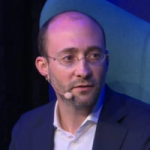 Corey Salsberg
Corey Salsberg
Vice President, Global Head IP Affairs, Novarti
With the patent system under unprecedented pressure here in the US and around the world, it’s never been more important to bring together thought leaders and stakeholders from the private and public sectors and academia to discuss and debate the IP and innovation-related issues that are defining our future. The 63rd Annual UIC John Marshall IP Conference did that with intention, quality and style, managing to readily distinguish itself from the many other IP conferences held across the country each year. This was my first time speaking at this conference, but I was truly impressed with the caliber of the panels, panelists, and dialogue. The atmosphere was energetic, the views diverse and frank, and the size was just right—large enough that you never ran out of people with whom to converse, small enough to still feel intimate and purposeful. Mixed in with the usual (but necessary) conversations over Section 101 reform, patenting AI, and the like, the conference managed to cover a range of interesting topics and material with something for everyone. I particularly enjoyed my own panel on in-house practice, as it gave me an opportunity to marry together some of the substantive challenges that I face in my practice every day due to the active legislative environment and other external changes, with the sharing of empirical observations, best practices and advice to the next generation of IP lawyers. I look forward to attending again next year.
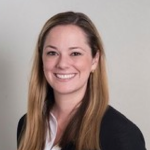 Lauren Simmonds
Lauren Simmonds
Counsel, Intellectual Property, Netflix
This was my first time attending the UIC John Marshall IP Conference, and I was incredibly impressed with the turnout from all areas of practice, including practitioners, judges, academics, and in-house counsel. I was honored to speak on the copyright & trademark plenary panel, and appreciated the ample opportunities to connect with other faculty and attendees. Daryl and his team have created an engaging, thought-provoking annual event.
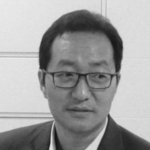 Kenneth K. Suh
Kenneth K. Suh
Media and Tech Lead at the Beazley Group
Professor Lim and the Center for Intellectual Property, Information & Privacy Law brought together IP and privacy leaders in the judiciary, government, academia, private practice, and in-house roles. Sessions were facilitated an open dialog between speakers with different viewpoints. As an attorney at a company with international IP and data privacy exposure, the sessions provided important substantive law updates and provided insight into how others view the same issues. The afternoon breakout sessions and multiple tracks allowed attendees to choose the most relevant topics.
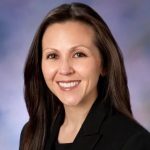 Koren Wong-Ervin
Koren Wong-Ervin
Director of Antitrust Policy & Litigation at Qualcomm Inc.
Senior Expert and Researcher at China’s UIBE and CUPL
I was honored to participate in this terrific conference! One takeaway is the fundamental dispute over the connection between the collective action of standardization and subsequent unilateral conduct. Some argued that standardization involves competitors getting together to pick winners, that antitrust law only allows this because of FRAND commitments, and thus breach of a good faith commitment can amount to an antitrust violation. But there are problems with this. First, standardization doesn’t necessarily confer monopoly power. Empirical research suggests standardization tends to crown winners as opposed to creating them, i.e. the best technologies are natural candidates for inclusion. Second, as the Fed.Cir. explained in Rambus v. FTC (relying on the SCt. in NYNEX v. Discon), an otherwise lawful monopolist’s end-run around a price constraint in the form of a FRAND commitment does not alone present harm to competition. In contrast with ex-ante deception in the standardization process—which could, under narrow circumstances, result in the unlawful acquisition or maintenance of market power—breach of a good faith FRAND commitment amounts to no more than ex-post contractual opportunism. Third, it’s not that the FRAND commitment constrains monopoly power, but rather that it creates a contractual remedy for its breach.
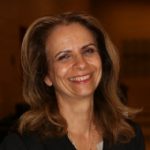 Shlomit Yanisky-Ravid, PhD
Shlomit Yanisky-Ravid, PhD
Fordham Law School, Visiting Professor
Ono Academic Law School, Israel
Founder and Director, the Shalom Comparative Research Institute, Law & Tech.
Yale Law School, Information Society Project (ISP), Prof. Fellow
After participating last year in this vivid, interesting and perfect organized conference – I had no doubts that I will attend this year as well. In joining the roundtable on artificial intelligence and the closing plenary panel this year, and speaking about my main topic of research AI and IP – I was delighted to listen to the leaders in the IP field. The elegant conference was worth every minute.
Led by Prof. Daryl Lim and his staff, the conference is an experience that is difficult to express in words. It is a stage where the law meets the challenges of the future. It is a meeting point for practitioners, judges, academic professors, students, government officials, and representatives from the relevant industries. The variety of speakers on a large number of panels discussed current and important issues.
As a scholar that try to imagine the unknown future of legal regime, I can certainly say, that the promise made by Prof. Lim to provide a forum for presenters and attendees alike to share their insights on the most important intellectual property developments and their future impact ,was completely fulfilled. I cannot wait for next year’s conference.

![[IPWatchdog Logo]](https://ipwatchdog.com/wp-content/themes/IPWatchdog%20-%202023/assets/images/temp/logo-small@2x.png)
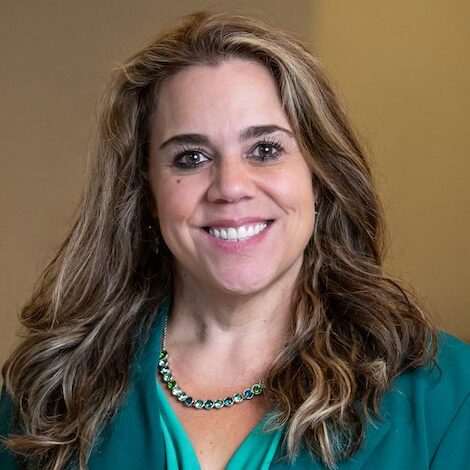
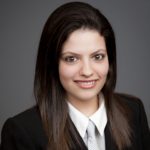 Sabina Nedkova
Sabina Nedkova![[Advertisement]](https://ipwatchdog.com/wp-content/uploads/2024/04/UnitedLex-May-2-2024-sidebar-700x500-1.jpg)
![[Advertisement]](https://ipwatchdog.com/wp-content/uploads/2024/04/Artificial-Intelligence-2024-REPLAY-sidebar-700x500-corrected.jpg)
![[Advertisement]](https://ipwatchdog.com/wp-content/uploads/2024/04/Patent-Litigation-Masters-2024-sidebar-700x500-1.jpg)

![[Advertisement]](https://ipwatchdog.com/wp-content/uploads/2021/12/WEBINAR-336-x-280-px.png)
![[Advertisement]](https://ipwatchdog.com/wp-content/uploads/2021/12/2021-Patent-Practice-on-Demand-recorded-Feb-2021-336-x-280.jpg)
![[Advertisement]](https://ipwatchdog.com/wp-content/uploads/2021/12/Ad-4-The-Invent-Patent-System™.png)






Join the Discussion
One comment so far.
Ben Muller
November 28, 2019 05:55 pmAll talk but FAANG holds the keys and will not let things move forward and congress will not solve the issue as the keep collecting donations from FAANG. AIA Act/PTAB and have been set up only to serve the elites. The Billionaires need to be taken out from the equation and the patent holders must be given their rights back to defend and get paid for their IP. Patent theft has been going on for to long and it does not seem Sen. Tillis or any political head will break away from the elites. Germany and China is the only way for new inventors to move forward, sad reality but true. Geed will eat it self and its what we have been seeing since 2011. I do not see how anyone in America will stand up to FAANG. They have bought up and pushed all the laws in their favor. Game over imo.